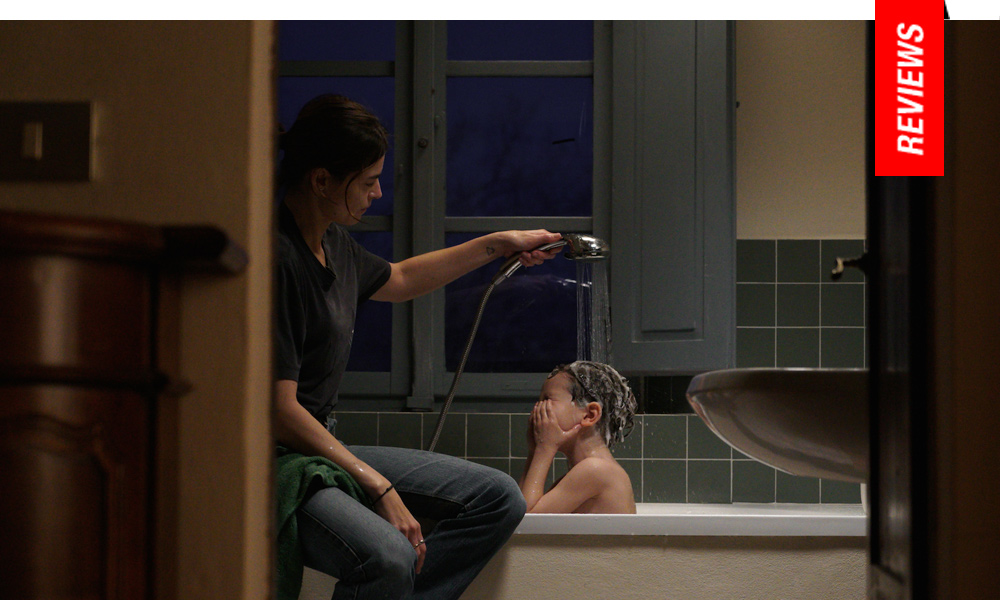Under the Tuscan Sun: Borcuch Presents Compelling Intersection on Art and Political Responsibility
Polish director Jacek Borcuch travels abroad once again for his fifth feature, Dolce Fine Giornata, a superbly written and performed exercise about a Nobel prize winning poet whose controversial interpretation of terrorism in contemporary European contexts allows for a formidable representation on the complex intersections of art, politics and the tenuously elevated platform afforded celebrated artists. A more academically minded approach to the ongoing refugee crisis and its prolonged effect on the crumbling democracy of Italian politics, Borcuch makes excellent parallels to European and Polish history (the obvious defining moments—the Holocaust and the early 80s Martial law in Poland) with iconic actress Polish actress Krystyna Janda (whose early career was also defined by this period) as his marvelous centerpiece.
A child of two Holocaust survivors who emigrated to Tuscany following the political turmoil in Poland, Maria Linde (Janda) is a renowned Jewish Nobel Prize Winner whose comfortable life has been challenged by an increasingly romantic flirtation with Nazeer (Lorenzo De Moor), an Egyptian immigrant who owns a local restaurant. Her husband (Antonio Catania) and daughter (Kasia Smutniak) observe their mother’s behavior hopelessly, aware of the local gossip this has generated. Reluctantly accepting a local award bestowed upon her by the mayor, Janda uses her acceptance speech as the opportunity to share her views on the troubling current political climate as well as a rather unfavorable comparison between artists and terrorists following a recent violent attack staged in Rome. Janda’s speech quickly draws ire from the local and international community, leading Maria into troubled waters with the local authorities and forcing her to confront how her behavior has affected her family.
Co-written by Borcuch and Szczepan Twardoch (credited on Malgorzata Szumowska’s excellent In the Name Of…, 2013), Dolce Fine Giornata (which translates to Sweet End of the Day) maintains a laidback, intimate cross section of troubled times completely filtered through the lens of Janda’s Maria Linde. The infamous Lampedusa serves as a passing reference, and perhaps Borcuch’s film is the first major production to showcase signs of wearying on the refugee subject at the local level. The valiant humanitarians of Gianfranco Rosi’s Fire at Sea (2016) and the well-intentioned historical comparisons of Markus Imhoof’s Eldorado (2018) feel like distant fantasies compared to the dismissive, disinterested authoritarians of the Tuscany we see here. It is perhaps the film’s strongest asset, highlighting the importance of an outsider’s perspective, and follows on Borcuch’s 2013 Spanish set Lasting, which snagged an award for cinematographer Michal Englert out of Sundance.
While her flirtation with an Egyptian immigrant is one of several catalysts leading up to the film’s finest moment (wherein Janda delivers a fiery remonstrance of European culture while controversially implying terrorists are like artists, their gifts/contributions being death), even this is relayed in somewhat elliptically, even peripheral fashion. Seeming to hold her husband and daughter at a suspicious distance, the only other real warmth she exudes is with her granddaughter, while her romance with Nazeer consists of a lot of decadent activities Maria likely gave up decades prior (such as one electric sequence through a dance dungeon).
As such, the project revolves significantly around Janda, who plays Linde like a dismissive, overbearing matriarch of a crumbling estate we’d expect to find in Bergman’s cinema, completely disinterested in the opinions of others or the reality of Father Time.
One of Poland’s most esteemed performers (she’s worked with Zulawski, Kieslowski and Wadja), Janda won Best Actress at Cannes in 1990 for Ryszard Bugajski’s Interrogation, a project which filmed in 1982 but wasn’t allowed to premiere until after the collapse of communism, a detail which should be lodged as an interesting footnote in the distressing cultural symptoms up for discussion here. Kasia Smutniak (recently seen in Sorrentino’s Loro, 2018) and Antonia Catania aren’t given much to work with as Maria’s painstaking family members while Vincent Riotta’s local police commissioner manages to make a lasting impression, particularly in the film’s finale sequence, which works as a significant visual metaphor for several reasons (as well as courting comparison to the purpose of the titular art installation in Ruben Ostlund’s The Square, 2017).
Reviewed on January 28th at the 2019 Sundance Film Festival – World Cinema Dramatic Competition. 92 Minutes
★★★½/☆☆☆☆☆
